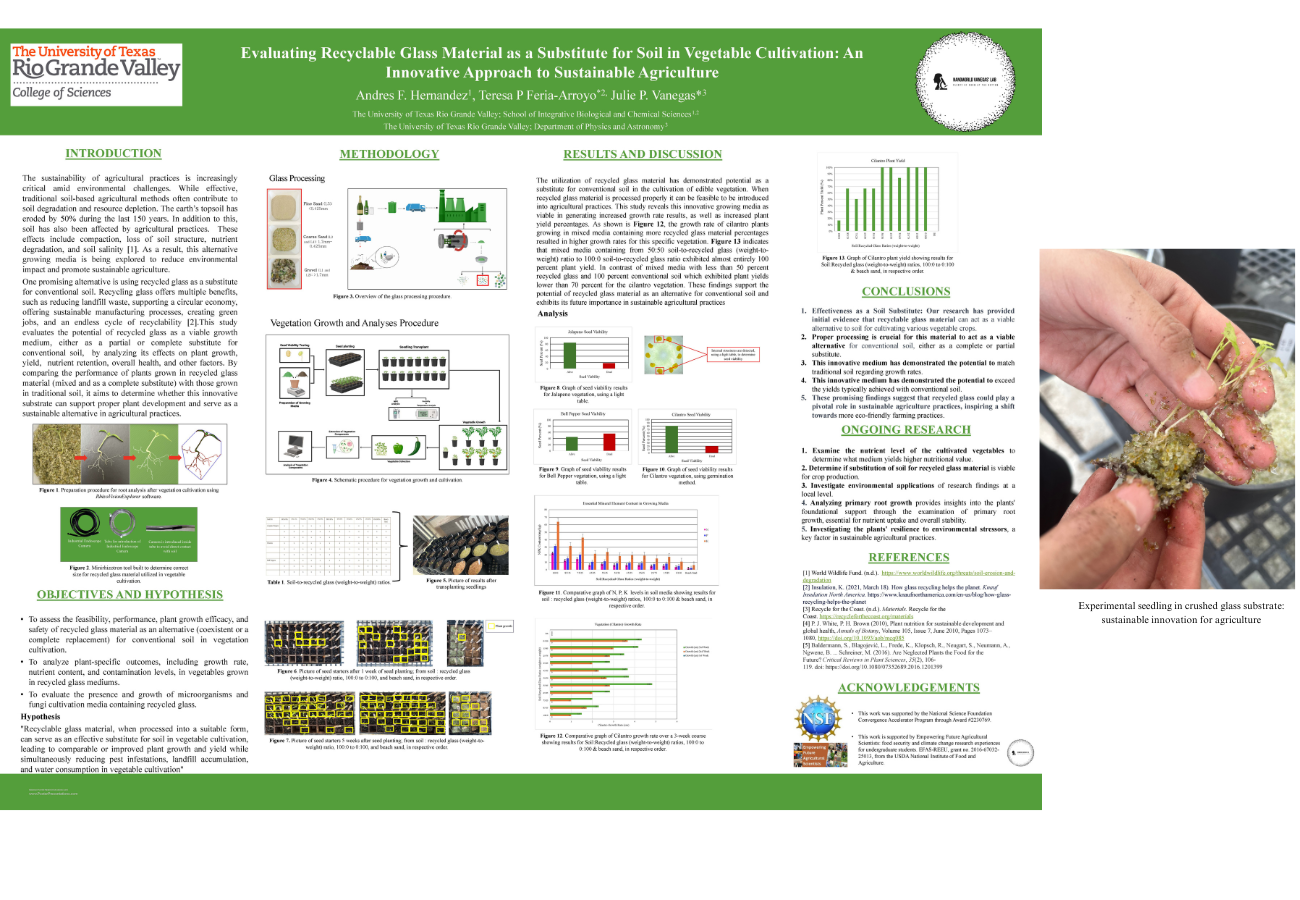
The sustainability of agricultural practices is increasingly critical amid environmental challenges. While effective, traditional soil-based agricultural methods often contribute to soil degradation and resource depletion. The earth’s topsoil has eroded by 50% during the last 150 years. In addition to this, soil has also been affected by agricultural practices. These effects include compaction, loss of soil structure, nutrient degradation, and soil salinity [1]. As a result, this alternative growing media is being explored to reduce environmental impact and promote sustainable agriculture.
One promising alternative is using recycled glass as a substitute for conventional soil. Recycling glass offers multiple benefits, such as reducing landfill waste, supporting a circular economy, offering sustainable manufacturing processes, creating green jobs, and an endless cycle of recyclability [2].This study evaluates the potential of recycled glass as a viable growth medium, either as a partial or complete substitute for conventional soil, by analyzing its effects on plant growth, yield, nutrient retention, overall health, and other factors. By comparing the performance of plants grown in recycled glass material (mixed and as a complete substitute) with those grown in traditional soil, it aims to determine whether this innovative substrate can support proper plant development and serve as a sustainable alternative in agricultural practices.